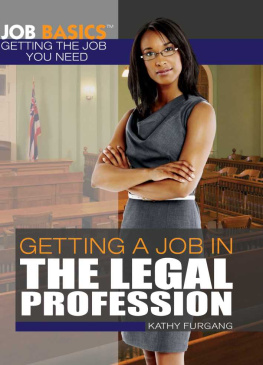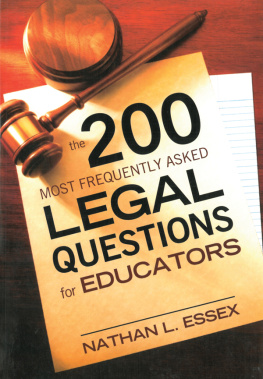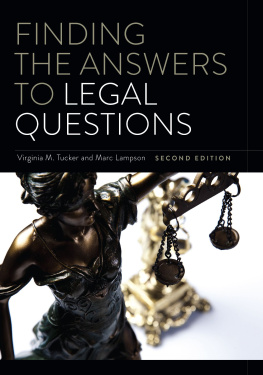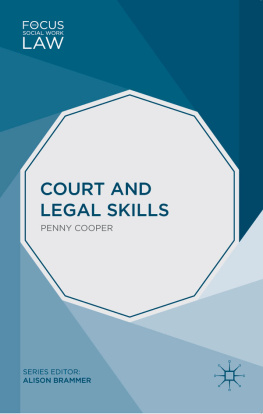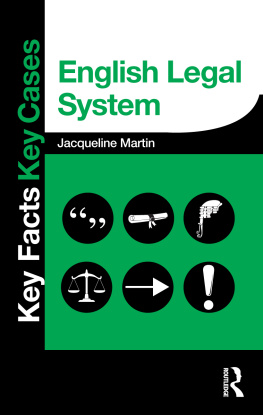Helping Library Users with Legal Questions
Practical Advice for Research, Programming, and Outreach
Deborah A. Hamilton

Copyright 2021 by Deborah A. Hamilton
All rights reserved. No part of this publication may be reproduced, stored in a retrieval system, or transmitted, in any form or by any means, electronic, mechanical, photocopying, recording, or otherwise, except for the inclusion of brief quotations in a review, without prior permission in writing from the publisher.
Library of Congress Cataloging-in-Publication Data
Names: Hamilton, Deborah A., author.
Title: Helping library users with legal questions : practical advice for research, programming, and outreach / Deborah A. Hamilton.
Description: Santa Barbara, California : Libraries Unlimited, [2021] | Includes bibliographical references and index.
Identifiers: LCCN 2020053010 (print) | LCCN 2020053011 (ebook) | ISBN 9781440872006 (paperback ; acid-free paper) | ISBN 9781440872013 (ebook)
Subjects: LCSH: Law librariesUnited States. | Law librariesReference servicesUnited States. | Legal researchUnited States.
Classification: LCC Z675.L2 H36 2021 (print) | LCC Z675.L2 (ebook) | DDC 025.5/27634dc23
LC record available at https://lccn.loc.gov/2020053010
LC ebook record available at https://lccn.loc.gov/2020053011
ISBN: 978-1-4408-7200-6 (print)
978-1-4408-7201-3 (ebook)
252423222112345
This book is also available as an eBook.
Libraries Unlimited
An Imprint of ABC-CLIO, LLC
ABC-CLIO, LLC
147 Castilian Drive
Santa Barbara, California 93117
www.abc-clio.com
This book is printed on acid-free paper 
Manufactured in the United States of America
The information provided in this book does not, and is not intended to, constitute legal advice; instead, all information, content, and materials are for general informational purposes only. Readers of this book should contact their attorneys to obtain advice with respect to any particular legal matter. Only your individual attorney can provide assurances that the information contained hereinand your interpretation of itis applicable or appropriate to your particular situation.
I would like to dedicate this book to my mother, Rita Hamilton. Through example she taught me the powerful impact that education can have upon ones life, the importance of fighting for justice, and the value of including everyone at the table. Although she is no longer with us, I hope that part of her spirit can live on through my work.
Contents
Acknowledgments
There are a few people and organizations I would like to thank and without whom the publication of this work would have not been possible. To the great team of people who make up the Pikes Peak Library Districtfirst and foremost, Jim Stolz, Janice McPherson, and Kaitlin Roederthank you for taking a chance on hiring a librarian with no legal background to fill the law librarian position. I thank my current supervisor, Amy Rodda, and my colleagues, Heidi Buljung, Sandy Hancock, Jenny Pierce, and Tammy Sayles for all their support and encouragement. I would also like to thank the many wonderful librarians of the Colorado Association of Law Librarians and the Southwest Association of Law Librarians. Both of these organizations have provided me with tremendous support and guidance.
In addition, I want to thank members of the access to justice and legal communities of Colorado Springs. These groups have helped me to better serve my community and to fully understand the complex challenges that self-represented litigants face. First and foremost, I extend my thanks to the Justice Center, their board of directors, former executive director Charles Simon, and current executive director Britt Kwan. Also, Kristi Dorr at the El Paso County Bar Association and Sarah Lipka at Colorado Legal Services have both helped me to forge meaningful connections with local attorneys. I am grateful to the Access to Justice Committee of the Fourth Judicial District in Colorado for their innovative approaches to assisting self-represented litigants, and last but definitely not least, to the Self Represented Litigant Coordinators and Family Court Facilitators of the Fourth Judicial District in Colorado, especially Lisa Younger Anderson for her great attitude and tireless work to help pro se litigants.
Outside of my professional world, I also extend thanks to my partner of many years, Richard Buxton. Your work ethic and dedication are an inspiration to me.
ONE
The Justice Gap
Who Are We Serving and Why Do They Need Us?
Our country is facing a justice crisis. Many low- and moderate-income people cannot afford the legal help they need to resolve civil legal disputes. According to Legal Services Corporations last major report from 2017, entitled The Justice Gap: Measuring the Unmet Civil Legal Needs of Low-income Americans , 86% of the civil legal problems reported by low-income Americans in the past year received inadequate or no legal help (Legal Services Corporation 2017, 6). This justice gap creates a two-tiered justice system where those who can afford an attorney have better chances of receiving justice than those who cannot. This gap fundamentally alters our perception of how the justice system works and who it is designed for. I will begin this chapter by examining what the justice gap is and who it affects. Next, I will explore some of the causes for this gap and what is being done by the justice system and legal-service providers to address this issue. Last, I will propose some ideas for how public libraries can help patrons in the position of having to represent themselves in court, ideas I will explore in more depth in subsequent chapters.
THE JUSTICE GAP
The Colorado Access to Justice Commission has defined the justice gap as the difference between the civil legal needs of low-income people and our systems capacity to meet those needs (Colorado Access to Justice Commission 2014, 5). This gap can be found in all fifty states and results in many people having to represent themselves in court or in other legal matters. These parties are referred to as pro se or self-represented litigants. Many of us are familiar with the right established by the U.S. Supreme Court case Gideon v. Wainwright , which states that if a defendant in a criminal matter cannot afford an attorney one will be provided to him by the state. This right to an attorney if you cannot afford one applies only to criminal matters, so those who are involved in civil cases are left to try to seek help from legal aid organizations that are overwhelmed by the volume of requests or to go it alone.
It is difficult to capture statistics that show the full breadth of the issue. Joy Moses writes: Theres no nationwide snapshot of the problem. We dont know how many people represent themselves in civil legal matters in the United States, and we cant make year-over-year comparisons. Still, 60 percent of judges in a 2009 study reported increases in self-represented litigants (Moses 2011, 15). Here are a few figures to consider. In their last major report released in 2017, Legal Services Corporation, the largest provider of legal aid services in the country, estimated that 1.7 million people would seek their services in 2017 but they would have the resources to assist only half of them (Legal Services Corporation 2017, 6). Legal Services Corporation offices can offer a range of help from legal advice to full representation. However, due to the large volume of people seeking assistance, not all cases can receive full representation, which explains the statistic that 86 percent of civil legal problems of low-income Americans received inadequate or no legal help I quoted at the beginning of this chapter.
Next page

